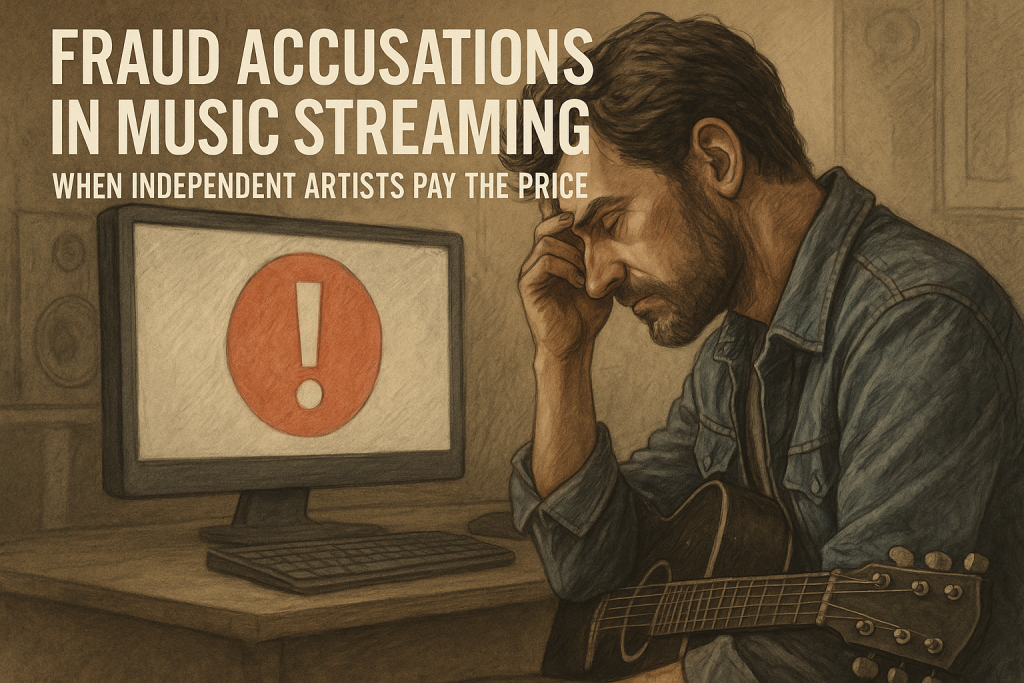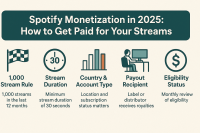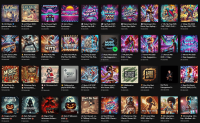When Independent Artists Pay the Price
Introduction
The rise of music streaming platforms has reshaped how artists distribute their work and how fans discover new music. Yet, alongside this transformation lies a darker reality: independent musicians increasingly find themselves penalized by fraud detection systems. Accused of manipulating streams, many see their tracks removed or their accounts suspended, even when they have done nothing wrong. This phenomenon highlights the tension between automated fraud detection and the fragile careers of independent creators.

What Is Streaming Fraud?
Streaming fraud typically refers to the use of bots, click farms, or other artificial means to inflate play counts. This practice can distort charts, trigger unfair royalty payments, and undermine the credibility of streaming services. Platforms like Spotify, Apple Music, and Deezer have invested heavily in algorithms designed to spot irregularities such as sudden spikes in plays, unusual geographic patterns, or looping behaviors.
While the intent is to protect the ecosystem, the automated nature of these systems often sweeps up innocent artists in its net. Independent musicians, who may suddenly gain exposure through a playlist or viral moment, risk being flagged as fraudulent simply for experiencing rapid growth.
The Algorithmic Trap
Fraud detection relies heavily on algorithms that scan for statistical outliers. A surge in listeners from a new country, a cluster of plays in a short timeframe, or repeated activity from a handful of IP addresses can all trigger red flags. But the challenge is that these same patterns can emerge naturally when a song catches fire on social media or gets added to a popular playlist.
For many independents, this means the very success they strive for becomes a liability. A breakout track can suddenly vanish without warning, erasing weeks or months of promotion. Worse, artists rarely receive clear explanations, leaving them to guess which aspect of their growth looked “suspicious” to the system.
Real Consequences for Independent Artists
The impact of false fraud accusations is severe. Tracks are taken down, royalties withheld, and reputations damaged. Independent artists often lack direct contacts at streaming companies, making it nearly impossible to appeal these decisions. In some cases, entire catalogs are pulled, forcing musicians to start from scratch.
For small acts who rely on streaming as their primary source of exposure, the financial and emotional toll can be devastating. A single false flag can mean lost momentum, missed opportunities, and a serious blow to their credibility in the eyes of fans and industry partners.
A Call for Transparency
To address this issue, streaming platforms must rethink how fraud detection is applied. Greater transparency around takedowns, clearer communication with artists, and a more nuanced review process could prevent unnecessary harm. Independent musicians should have access to support channels where they can contest decisions quickly and provide evidence of legitimate growth.
At the same time, the industry needs to balance fraud prevention with fairness. Protecting royalties and ensuring authentic streams is essential, but not at the expense of punishing honest artists who happen to find success.
Conclusion
Streaming has opened doors for countless musicians, but the fight against fraud has created unintended victims. Independent artists—already navigating a challenging landscape—are too often caught in the crossfire of automated systems. Without greater transparency and fairness, the platforms risk eroding the trust of the very creators who fuel their success. The future of streaming must include not only technological safeguards, but also human-centered solutions that protect both the industry and the artists who depend on it.
![]()

















